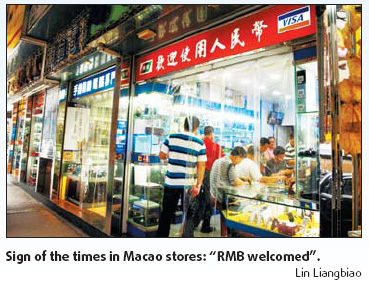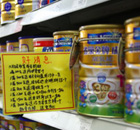Government and Policy
New currency deal simplifies RMB transactions in Macao
(China Daily)
Updated: 2009-12-21 09:14
 |
Large Medium Small |

MACAO: Officials of the People's Bank of China and the Monetary Authority of Macao Special Administrative Region (SAR) last week signed a historic agreement aimed at easing the restrictions on RMB business conducted by Macao banks.
According to the agreement, officially entitled the "Memorandum of Supplementary Cooperation Relating to Macao RMB Business", individuals can now exchange 20,000 yuan per transaction at Macao banks, a substantial increase on the previous level of just 6,000 yuan.
For the first time, Macao residents will also be allowed to use RMB cheques to pay up to 50,000 yuan ($7,322) per account per day for consumer spending in neighboring Guangdong, part of the Chinese mainland. The number of approved agents entitled to exchange RMB for Pataca (the local Macao currency) has also been increased.
The agreement was signed by Zhu Min, deputy governor of the People's Bank of China's Head Office and Anselmo Teng, chairman of the Monetary Authority of Macao. The signing ceremony took place at the Macao SAR Government Headquarters on the afternoon of December 14th.
The newly-signed agreement updates the relevant supervisory cooperative measures established in 2004 by the two sides, under the "Administrative Rules on the Pilot Program of Renminbi Settlement of Cross-Border Trade Transactions" document, which covered arrangements involving Macao and the three aforementioned measures relating to widened RMB business.
In accordance with the provisions of the earlier agreement, jointly endorsed by the People's Bank of China and the relevant ministries of the State Council, Macao banks were authorized to handle the settlement of cross-border trade transactions using RMB between Macao companies and nominated businesses on the mainland.
All such transactions have to be implemented via the Macao clearing bank for RMB business and/or their correspondent's bank on the mainland.







